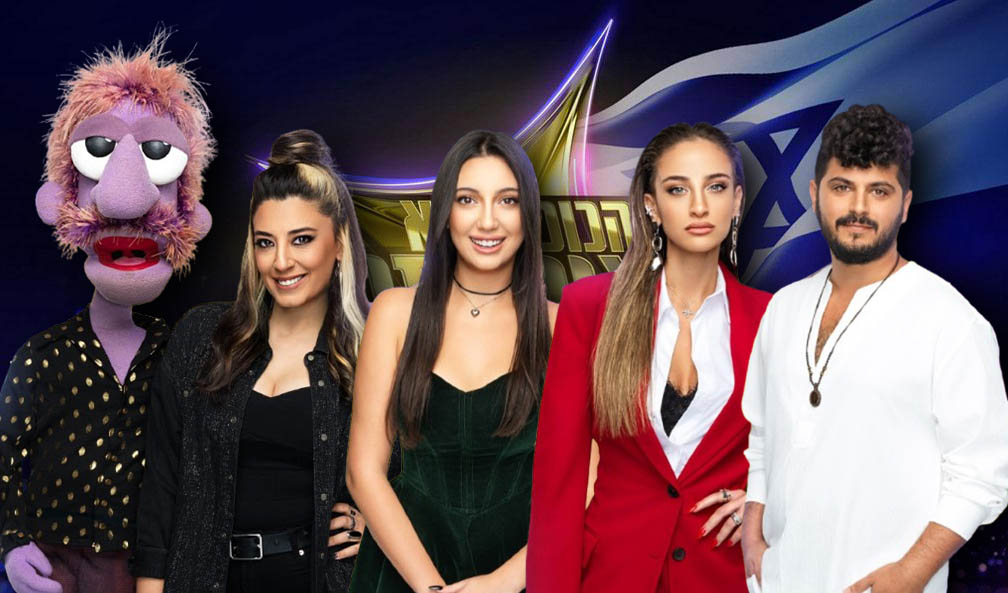In our previous article, we introduced Valerie Hamaty, the Arabic-speaking Christian Orthodox singer who made a strong impression on the latest episode of HaKokhav Haba. As one of the frontrunners, she’s vying to represent Israel at Eurovision 2025. In this article, we delve deeper into her heritage and explore what it means to be an Arabic-speaking Greek Orthodox in the Middle East.
The Inspiration Behind This Article
This article was inspired by a recent feature on the same topic by Tribune.gr. In our earlier coverage, we hesitated to delve into this aspect of the story (perhaps wrongly), as the topic of Israel remains a sensitive issue. Many react negatively to anything related to Israel without taking the time to read and understand the context.
The History of Arabic-Speaking Romioi
To understand what it means to be an Arabic-speaking Greek Orthodox in the Middle East and why they self-identify as “Rum” (Romioi), we must take a journey back through history.
After the 6th century A.D., when the region of today’s Middle East fell under Arab rule, the Greek language gradually disappeared. However, many inhabitants retained their Orthodox Christian faith and continued to identify as “Romans,” acknowledging the Eastern Roman Empire (today called the Byzantine Empire) as their homeland.
Ecclesiastically, these populations belong to the Patriarchate of Antioch, which was originally based in Antioch but is now headquartered in Damascus. Until the late 19th century, the Patriarchate of Antioch, like the Patriarchate of Jerusalem, was led by Greek Patriarchs. However, Russian intervention aimed at diminishing Greek influence led to the election of Arabic-speaking Patriarchs starting in 1899. Despite this shift, the Patriarchate retains its title as the “Greek Orthodox Patriarchate of Antioch,” and the Greek flag still flies at its headquarters in Damascus.
The Romioi of the Middle East
The spotlight on the Romioi community reignited after a recent devastating earthquake in Antioch, Turkey, which brought attention to their centuries-old presence in the region. Although they speak Arabic, they identify as Romioi, and many have migrated to Istanbul in recent decades. Their children attend Greek schools in the city, helping to sustain the minority tradition. Today, the number of Arabic-speaking students in these schools is nearly equal to that of Greek-speaking students.
Arabic-speaking Orthodox Christians primarily live in Lebanon, Syria, Israel, and Antioch, with smaller populations in the Palestinian Territories and Jordan. However, wars and emigration have significantly reduced their numbers.
Valerie Hamaty: A Romia for Eurovision 2025?
Valerie Hamaty, 25, an Arabic-speaking Christian Orthodox artist, recently captivated audiences on HaKokhav Haba, the talent show that determines Israel’s Eurovision representative. This is her second attempt at the show; in 2022, she finished as the runner-up. Besides her singing talent, she has also made a name for herself as an actress.
The possibility of Valerie representing Israel at Eurovision 2025 is highly symbolic. It highlights the multicultural fabric of Israeli society and serves as a powerful message of unity in a region fraught with political and religious divisions.
https://www.youtube.com/watch?v=qDwedQnSWfc
Her Main Rival
Yuval Raphael, a survivor of the October 7 Hamas attack, is seen as Valerie’s main competitor. Yuval survived the massacre at the Nova Festival by pretending to be dead for hours.
Local media and Eurovision fans in Israel suggest that these two talented artists will likely compete head-to-head for the ticket to Basel. Both carry significant symbolic weight, making the final decision highly anticipated.
https://www.youtube.com/watch?v=b1pV-8Asjok
A Competition Beyond Music
The developments in HaKokhav Haba promise to be exciting, as this selection process once again proves that Eurovision is more than just a music contest.
Stay tuned to Eurovisionfun for all the latest updates!



